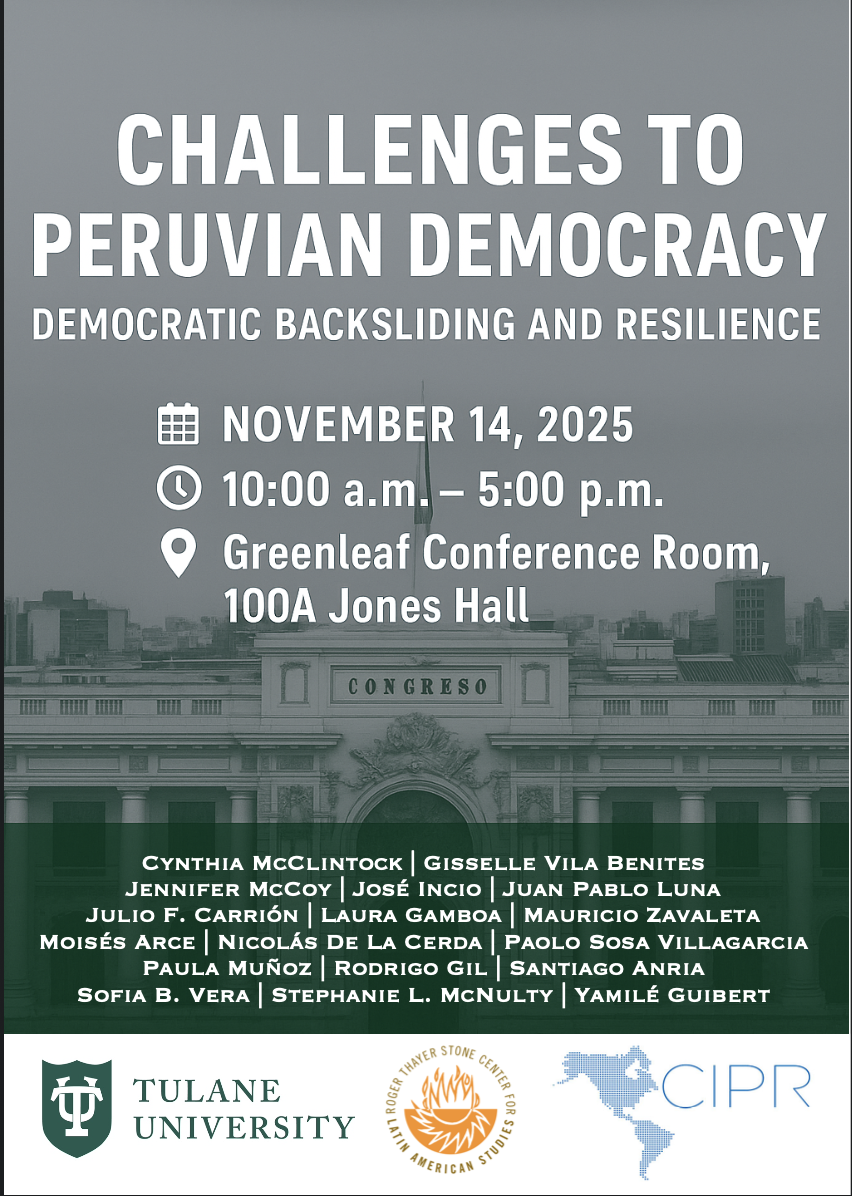
This workshop aims to reflect on the challenges facing Peru today and how they will impact the future of its democracy. Until a decade ago, Peru was an example of democratic resilience in a region plagued by democratic setbacks. Today, on the contrary, it is among the countries with significant democratic backsliding. What happened?
The workshop is organized into four sessions that discuss the country’s structural and current problems, the changes and consequences in its political system, and the prospects for democracy in this new context. The questions and sentences written below are suggestions and only meant to minimize potential overlap between sessions and presentations.
Sign up to receive the Zoom link for online participation.
Part I (8:00 a.m.): Old and new problems for democratic consolidation
This session analyses the impact that old problems have had on the consolidation of Peruvian democracy, but also the role of new problems in its recent erosion. It seeks to reflect primarily on the impact of material and symbolic inequalities and systemic corruption, but also on the new dynamics of informality and illegality that threaten the country.
-Stephanie L. McNulty, Franklin & Marshall College: What remains after the post-Fujimori democratizing reforms?
-Gisselle Vila Benites, Cornell University: State capacity and illegal and informal economies
-SanSago Anria, Cornell University: PolarizaSon dynamics in Peru and the Andean region
Moderator: Moises Arce, Tulane University
Part II (10:00 a.m.): Democratic governance and regime change
This session reflects on the challenges of democratic governance since the 2001 transition and recent changes, considering the executive-legislative crisis that began in 2016. It not only examines the institutional components, but also the social dynamics that call governance into question (social conflicts, state challengers, etc.).
-Yamilé Guibert, Cornell University: CorrupSon and its impacts on democracy
-Julio Carrión, University of Delaware: Changes in poliScal culture and support for democracy
-José Incio, PonSficia Universidad Católica del Perú: The rise of legislative authoritarianism in Peru
Moderator: Sofia Vera, Kansas University
Part III (1:30 p.m.): The 2026 elections
This session reflects on the possible scenario for the April 2026 elections. It seeks to identify patterns that could be observed considering recent history, but also the threats and possible outcomes of an election amid a process of democratic erosion.
-Cynthia McClintock, George Washington University: How do Peruvian elites align themselves in times of crisis?
-Mauricio Zavaleta, University of Pittsburgh: How politicians compete in highly fragmented environments and what can emerge from them?
-Rodrigo Gil, Instituto de Estudios Peruanos: What is the impact of radicalism on political competition and how does it influence the dynamics of governance?
Moderator: Nicolas De La Cerda, Tulane University
Part IV (4:00 p.m.): Peru in comparative perspective
This final session seeks to reflect on what was discussed in the previous modules and to put the evidence of the case into a comparative perspective. What lessons can be learned from and for the Peruvian case? What possible future scenarios await the country based on the experience of neighboring countries? What will be the impact of Peru’s future on the politics of the region?
-Jennifer McCoy, Georgia State University
-Juan Pablo Luna, McGill University
-Laura Gamboa, University of Notre Dame
Moderator: Paula Muñoz, Universidad del Pacífico
